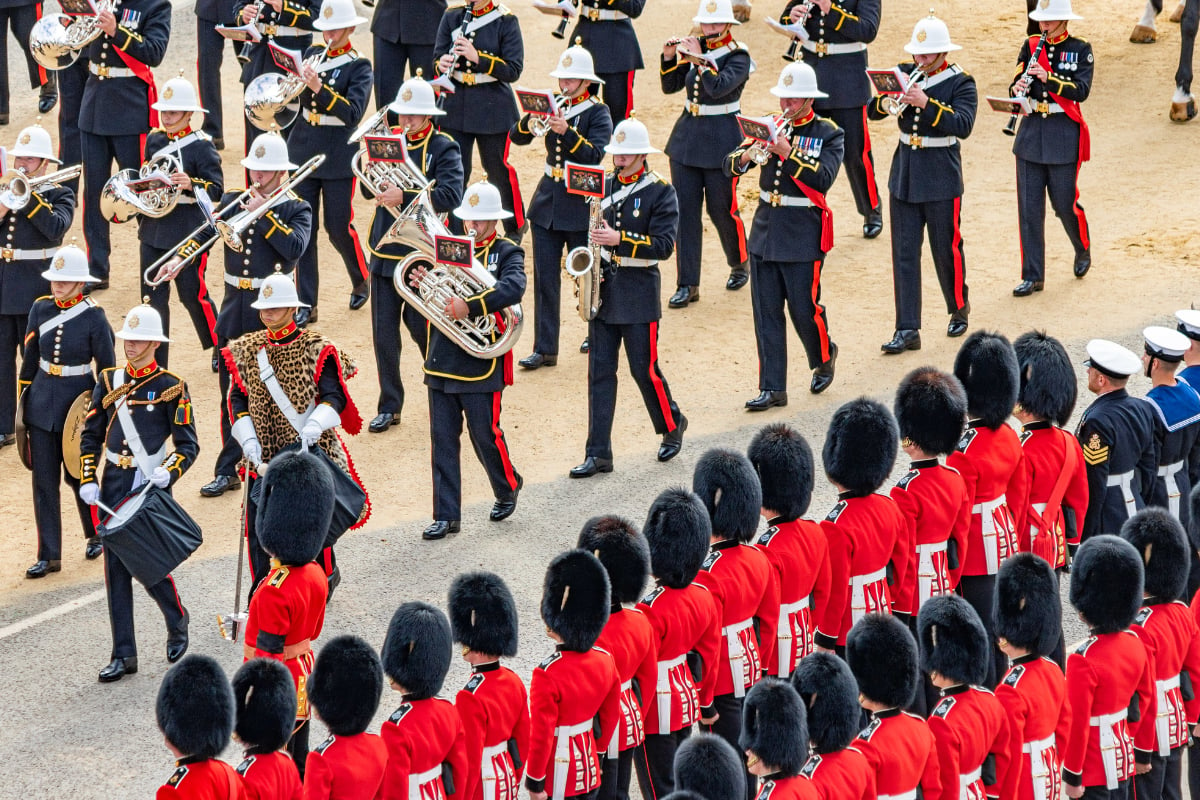
Photo: DCMS
Royal funeral underlines the importance of music
As the Queen's funeral so poignantly demonstrated, music is right at the heart of the UK's cultural life. Steven Berryman thinks it highlighted the importance of protecting the place of music in our national curriculum.
Musical taste is typically polarised. Before the pandemic musicians and the public engaged in lengthy debate about the role Mozart and Stormzy could play in the music curriculum in our schools.
We wrestle, as music educators, with embracing the musical enthusiasms of our students alongside our own musical ambitions and interests. We can’t hope to be experienced in all musical practices. Spotify has over 70 million songs; there is no possibility we could listen to them all, even in multiple lifetimes.
Preparing music for a funeral, and particularly royal one, is demanding. Musical choices make statements about much more than our tastes. They are expressions of our identity, and a funeral broadcast to millions extols much more than the musical interests of a monarch.
Queen Elizabeth made considerable contributions to classical music during her reign and the programme on Monday revealed a strong affinity not only with key English composers of the past, but with living composers whose contemporary contributions have now been heard across the world. Such audiences are not typical for contemporary classical music but the works by Judith Weir (the present Master of the Queen’s Music) and James MacMillan were well received.
Music education needs preserving
The music during the service proved that the sonic accompaniment to a ceremony of such pathos amplifies the emotional intent for us all – by the beauty of the singing, and the compelling melodies that seemed to soar with heavenly arcs.
It’s important also to recognise the efforts of those who sang, played or directed the liturgical music during the ceremony. The pressure must have been considerable and being able to perform with technical aplomb and poise under those circumstances deserves acknowledgement.
But it also feels just to prompt the world to recognise that an education in music enabled the pathos of the royal funeral to be achieved. It feels just to remind the world that music education needs preserving, and it remains in peril due to cuts and challenges to its value.
Interestingly the cancellation of the final few days of the Proms had a mixed response. Some felt it was appropriate for the festival to go ahead in tribute to a monarch who valued music so highly. Perhaps it was a mistake to cancel the very festival that celebrates the musical practices Her Majesty patronised so heavily. But to permit the silence afforded the space to recognise Queen Elizabeth’s reign that was rich in music.
Contribution cannot be overstated
Music’s contribution to our cultural life cannot be overstated. And 2022 saw some promising policy moves in the devolved nations to enhance equitable access to music in schools.
However, the cost-of-living crisis might stall some of the funding arrangements that sought to make instrumental learning accessible to all children in Scotland. The refreshed National Plan for Music Education, published in the summer, sought to reaffirm the English government’s commitment to music.
I hope our new Education and Culture Secretaries will read this plan which aspires to reach every child, every school and every community through a shared endeavour and belief in the power of a musical education.
Protecting the investment in a musical education ensures we can support musical studies and training beyond school. There is much to do to be genuinely inclusive. The funeral revealed that classical music enjoys significant patronage and those who pursue specialist training from a young age are funded extensively.
Our cultural assets need sustained commitment
Many organisations work tirelessly to reach beyond those that typically access the musical professions, that enjoy the honour of advanced musical training. I would be thrilled if we enhance our efforts to reach those most likely to miss out on the joys of advanced training, and attendance at conservatoires. Working to keep music accessible to all in the school curriculum will strengthen our pursuit of a diverse and inclusive profession.
We need music now more than ever. We need arts and culture now more than ever. To comprehend the challenges of our time, and to tell the story of how we might imagine a more compelling future. Our cultural assets, be they orchestras, choirs and ensembles, need sustained commitment. Our new Culture Secretary would do well to secure the long-term investment in what makes our nations so valued internationally through the musicians who perform across the world (despite the challenges facing performers who seek to work abroad).
Music will continue to be the soundtrack to our lives and will continue to feature at moments of significance; moments that are private, public and ceremonial. Monday revealed that, regardless of taste, we can be united in the beauty that music provides, and that music can be deeply personal yet shared with intensity.
Monday will compel more of us to join a choir, join a band, and join our friends to create more shared musical experiences. Monday reaffirmed that a life without music would be immeasurably poorer. It necessitates every government, in the UK and beyond, to ensure music not only reaches our ears but reaches out hearts and minds inside the school gates.
Dr Steven Berryman is President-Elect of the Chartered College of Teaching, and a Visiting Research Fellow at King’s College, London.
![]() @Steven_berryman
@Steven_berryman

Join the Discussion
You must be logged in to post a comment.